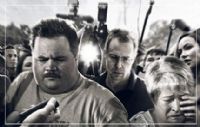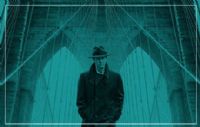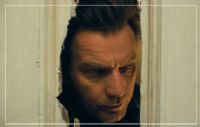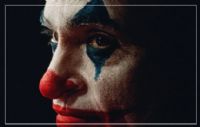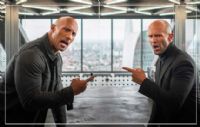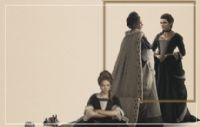Oculus
Date: 13/06/2014
Movie Review
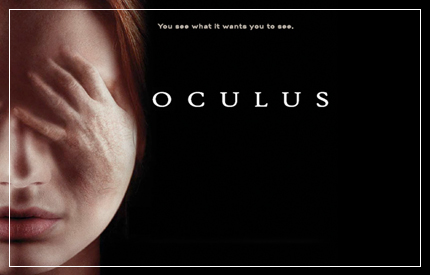
Mirror, mirror on the wall, who’s the scariest of them all? If the box-office is to be believed, it’s Blumhouse Productions. In recent years, the company has been behind the wave of micro-budgeted popcorn horror flicks such as Paranormal Activity, Sinister, and The Purge – all of which went on to be great financial successes at the box office. Directed by Mike Flanagan, Oculus seems to be next in line to join the ranks of the franchised fright fest.
Based on a short film, also written and directed by Flanagan, the film stars Karen Gillan as Kaylie, a young woman who has spent the past eleven years convinced that her parents’ death was caused by an antique mirror and the evil spirits that dwell within.
While she has spent the last decade trying to build a case to support her theory, her brother Tim, played by Brenton Thwaites, has been trying to convince himself otherwise. Spending his teenage years in a psychiatric hospital, he’s finally released at the age of twenty-one, coming to terms with the fact that his family was extremely dysfunctional, rather than pinning the blame on a supernatural entity.
When the two are reunited, they return to their parents old house in order put their demons to rest – whether they are of psychological or supernatural origins.
Pitting skeptic against believer, Oculus actually has some rather interesting psychological ideas, particularly in the first half of the film. The cynic brother puts his sister’s delusions down to ‘fuzzy-trace theory’ – an idea that human memory creates false memories out of inaccurate associations. In this film, it’s used as a defense mechanism against dealing with the truth.
For a horror film, it’s not a new concept but one that’s quite unique to this current trend of casual big-screen summer horrors. As an audience of course, we want to believe, so the film uses a dual time frame to simultaneously explain what happened eleven years ago alongside what is happening in the present.
Katee Sackhoff and Rory Cochrane play the parents who, depending on who you believe, are either on the verge of a rather bitter break-up or are being tormented by the demonic powers that lurk in the mirror. Initially, we’re given two sides of the same coin, as both the rational and the supernatural side of things are alluded to.
Some interesting cinematography sees both past and present played out in real time, keeping the pace going at a heart-pumping speed, even if it is rattling towards an rather unsurprising conclusion. It’s at that point you realize that, for all of its good ideas, Oculus can’t help but succumb to the usual whizz bang funhouse horror rather than create something rather more unsettling.
While there are reflections of Stanley Kubrick’s The Shining, the film probably owes more to the 2003 Korean film Into The Mirror, directed by Kim Sung-Ho (or its iffy American remake Mirrors, starring Kiefer Sutherland).
But the spooky mirror plot device is underused, instead stepping to one side in favour of the usual horror tropes and unnecessary lore. It’s as if Blumhouse Productions have a certain quota of loud noises and satanic references to fulfill.
That’s not to say there aren’t some genuine shocks. One scene in particular involving a light bulb leaves a rather bad taste in your mouth. Of course, these would be all the more shocking if we hadn’t seen them already in the trailer.
The best horrors are the ones that leave you feeling creeped out afterwards, checking all the doors are locked before you go to bed with the lights on. Instead, Oculus undoes all of its own hard work and descends into a predictable horror that goes straight for the cheap thrills. And for that sin, it needs to take a good long hard look in the mirror.
Leigh Forgie
Oculus is showing now at Moviehouse Cinemas.
Based on a short film, also written and directed by Flanagan, the film stars Karen Gillan as Kaylie, a young woman who has spent the past eleven years convinced that her parents’ death was caused by an antique mirror and the evil spirits that dwell within.
While she has spent the last decade trying to build a case to support her theory, her brother Tim, played by Brenton Thwaites, has been trying to convince himself otherwise. Spending his teenage years in a psychiatric hospital, he’s finally released at the age of twenty-one, coming to terms with the fact that his family was extremely dysfunctional, rather than pinning the blame on a supernatural entity.
When the two are reunited, they return to their parents old house in order put their demons to rest – whether they are of psychological or supernatural origins.
Pitting skeptic against believer, Oculus actually has some rather interesting psychological ideas, particularly in the first half of the film. The cynic brother puts his sister’s delusions down to ‘fuzzy-trace theory’ – an idea that human memory creates false memories out of inaccurate associations. In this film, it’s used as a defense mechanism against dealing with the truth.
For a horror film, it’s not a new concept but one that’s quite unique to this current trend of casual big-screen summer horrors. As an audience of course, we want to believe, so the film uses a dual time frame to simultaneously explain what happened eleven years ago alongside what is happening in the present.
Katee Sackhoff and Rory Cochrane play the parents who, depending on who you believe, are either on the verge of a rather bitter break-up or are being tormented by the demonic powers that lurk in the mirror. Initially, we’re given two sides of the same coin, as both the rational and the supernatural side of things are alluded to.
Some interesting cinematography sees both past and present played out in real time, keeping the pace going at a heart-pumping speed, even if it is rattling towards an rather unsurprising conclusion. It’s at that point you realize that, for all of its good ideas, Oculus can’t help but succumb to the usual whizz bang funhouse horror rather than create something rather more unsettling.
While there are reflections of Stanley Kubrick’s The Shining, the film probably owes more to the 2003 Korean film Into The Mirror, directed by Kim Sung-Ho (or its iffy American remake Mirrors, starring Kiefer Sutherland).
But the spooky mirror plot device is underused, instead stepping to one side in favour of the usual horror tropes and unnecessary lore. It’s as if Blumhouse Productions have a certain quota of loud noises and satanic references to fulfill.
That’s not to say there aren’t some genuine shocks. One scene in particular involving a light bulb leaves a rather bad taste in your mouth. Of course, these would be all the more shocking if we hadn’t seen them already in the trailer.
The best horrors are the ones that leave you feeling creeped out afterwards, checking all the doors are locked before you go to bed with the lights on. Instead, Oculus undoes all of its own hard work and descends into a predictable horror that goes straight for the cheap thrills. And for that sin, it needs to take a good long hard look in the mirror.
Leigh Forgie
Oculus is showing now at Moviehouse Cinemas.
More info : http://www.moviehouse.co.uk/whats-on/



























